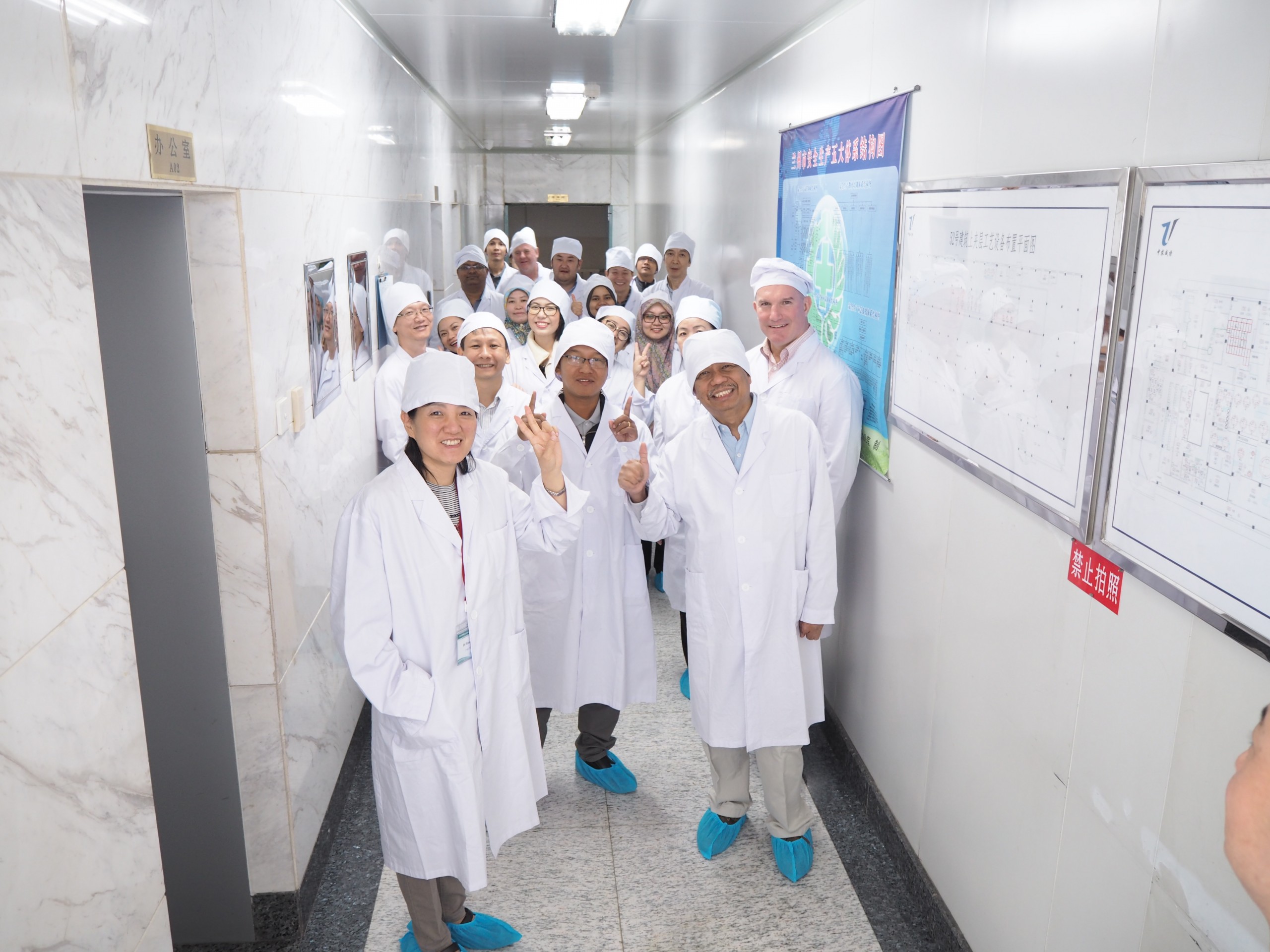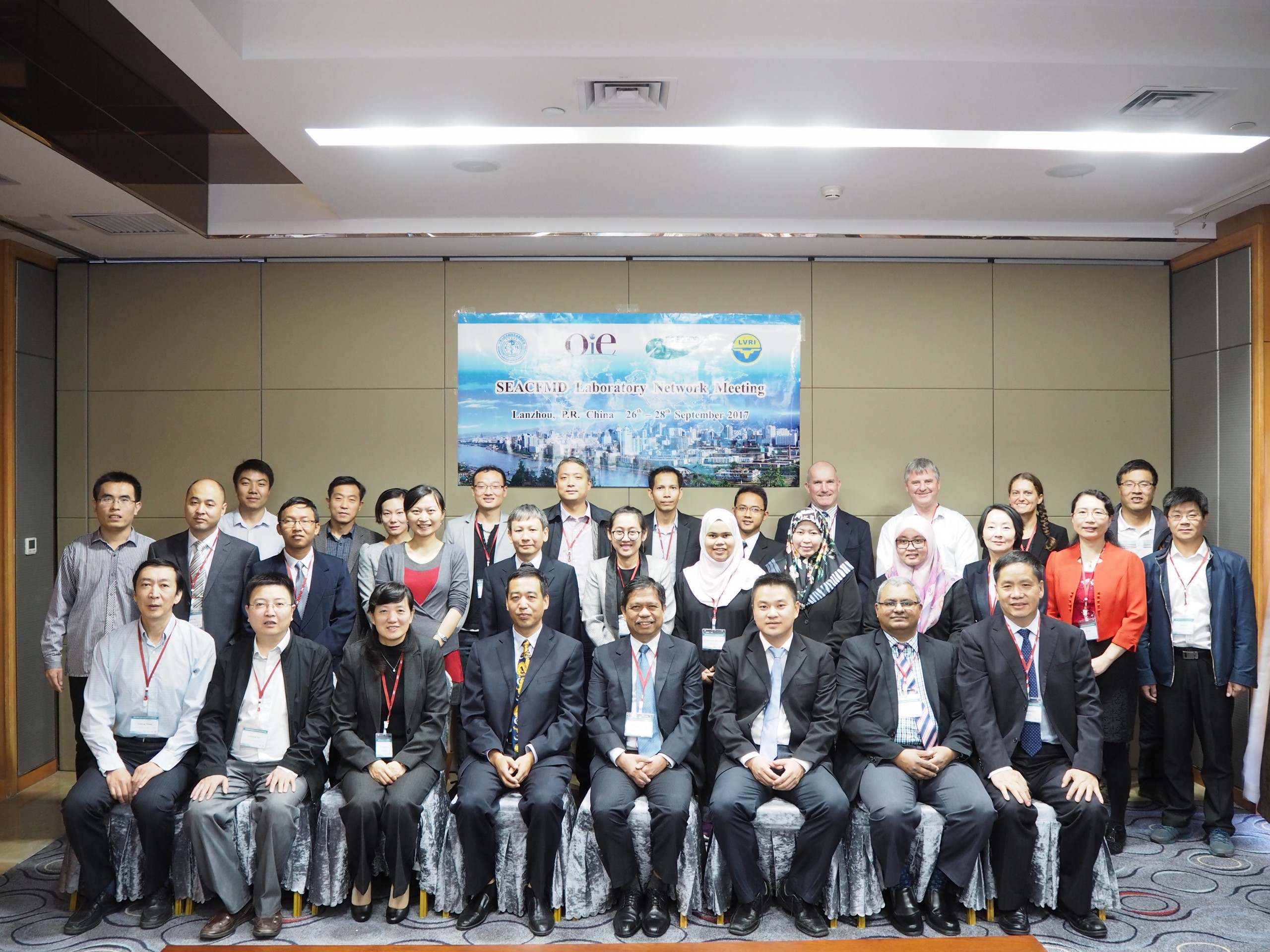OIE SRR-SEA, in collaboration with the Lanzhou Veterinary Research Institute (LVRI)/OIE Reference Laboratory for FMD, organised the SEACFMD Laboratory Network meeting on September 26-28, 2017 in Lanzhou, China. The meeting gathered 35 representatives from laboratories of SEACFMD Member Countries and partner organisations and research institutes both within the region and further afield.
A key recommendation during the meeting was the application of more sensitive detection method such as Real-Time Polymerase Chain Reaction (RT-PCR) in support of the existing antigen ELISA due to the latter’s certain limitations in detecting FMDV.
The three-day meeting formally opened with welcome messages from Dr Qibin Yan, representative of China Ministry of Agriculture; Dr Yin Hong, Director General of LVRI; and Dr Ronello Abila, OIE Sub-Regional Representative for South-East Asia. They all highlighted the meeting as an excellent opportunity for in-depth discussions of pressing issues regarding FMD laboratory diagnosis and research, as well as how to improve regional cooperation on FMD surveillance and research. Dr Abila emphasized the important role of FMD Laboratory Network in support of SEACFMD activities such as promoting early detection and characterization of FMDVs, strengthening lab capacities, among others.
While most countries in the SEACFMD region are actively testing for FMD in their countries, samples submitted to the national laboratories are sometimes of poor quality and/or insufficient quantity. Subsequent submission to Reference Laboratories for confirmatory diagnosis and further characterization is likewise slow which restrain better understanding of FMDV epidemiology in the region. Potential technical approaches to address the current challenges were introduced by Dr Nagendra Singanallur from Australia Animal Health Laboratory. A brainstorming workshop was organized to encourage Member Countries to explore alternative sampling approaches and improve sample collection and submission to OIE Reference Laboratories to improve the real-time surveillance of FMDV in the region. The meeting recommended that OIE Reference Laboratories, in collaboration with research partners, develop brochures and conduct training on proper sample handling to improve the mechanism of sample collection and submission.
Updates on the global and regional FMD situation including evolutionary pattern of FMDVs were presented by representatives from OIE SRR-SEA and OIE Reference Laboratories in UK, China and Thailand. Member Countries shared activities of their national FMD laboratories and presented the various challenges encountered pertaining to laboratory activities. Progress of proficiency testing in FMD laboratories in SEA was reported by OIE Reference Laboratory based in Thailand. A robust cross-protection against the recently introduced FMDV India2001d strain provided by a Chinese commercial vaccine was reported by OIE Reference Laboratory based in China. Updates on FMD research achievements were shared by partners like FAO, Japan National Institute for Animal Health, and Yunnan Animal Science and Veterinary Institute in China.
Country representatives, grouped according to FMD status, discussed actions and activities that could be taken by laboratories to support the SEACFMD research priorities. Opportunities to test and apply in the region the technical approaches presented earlier were tackled. Other topics discussed during the meeting were the results of post-vaccination monitoring (PVM) studies in Lao PDR and Myanmar, and the SEACFMD research priorities for 2017-2020. Technical components for the next SEACFMD Laboratory Network meeting were identified which includes bioinformatics and laboratory proficiency testing.
A field trip to LVRI and a local FMD vaccination production company (CAVET) was conducted on the last day to demonstrate FMD laboratory facilities and vaccine production and highlight potential collaborations on FMD research and vaccine import/export.

